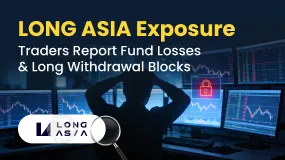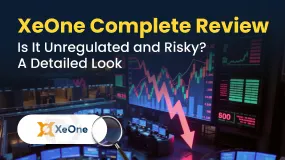Abstract:Memes gained increasing prevalence and relevance as the internet and social media grew, allowing people to rapidly spread humorous, interesting, or sarcastic videos, images, or posts to others around the world.

Memes gained increasing prevalence and relevance as the internet and social media grew, allowing people to rapidly spread humorous, interesting, or sarcastic videos, images, or posts to others around the world. The previous year, and the year before it, stand out in history not only because of the pandemic and ubiquitous lockdowns. They also gave rise to so-called meme stocks that have often managed to take the global stock markets entirely by surprise. Like none of the other stocks, meme stocks have the power to rattle the markets in several days or even hours and can gain value with unprecedented speed. Read on to learn what meme stocks are and how they succeed in capturing investors unawares.
What Are Meme Stocks?
Meme stocks are company shares on the stock market that have gone viral because of their popularity on the internet, explains investing platform Public.com. Meme stocks have two significant characteristics. They skyrocket in price in an extremely short period: hours or days. Their jump is generated by a sudden flurry of interest online or on social media and subsequent mass purchases among small individual investors.
The name of meme stocks, when translated from ancient Greek, reveals their essence. The word “mimema,” from which the word “meme” comes, means “imitated.” The concept was introduced in 1976 by British evolutionary biologist Richard Dawkins in his work The Selfish Gene and refers to a unit of cultural information spread by imitation.
Understood this way, memes are replicated and transmitted from one person to another. Memes evolve, mutate, and undergo natural selection, becoming popular among the masses. Memes are transmitted in verbal, visual, written, or electronic communication, such as through conversations, books, media, e-mail, or the Internet. Memes gain the widest popularity within a culture.
Meme stocks are not a class of investments that‘s covered in a textbook. They can be value or growth companies, said Misty Lynch. As traditional investors often point out, the sharp advance of meme stocks is occasioned neither by business fundamentals nor their strong performance. In their eyes, meme stocks climb on the whim of people expressing their opinions on social media channels. Often, people conspire to push a stock’s price up to reap quick rewards from its increase.
Investors who look kindly at meme stocks say that what counts in investing is the surging stock price. No matter what the fundamentals are, a business should be deemed strong if a stock is supported by the multitude and grows. They also remind the detractors of meme stocks that the proof of the pudding is in the eating: if people earn money by investing in meme stocks, these stocks should be appreciated.
How Does a Meme Stock Work?
Meme stocks rise in popularity because of conversations held online. Word travels fast on the internet, and when a stock goes viral by word of mouth, it tends to see rapid price spikes. Because the price increase that follows is artificial and not the result of the companys actual performance, these spikes are most often followed by an inevitable crash.
How Did It All Start?
The first meme stock, video game retailer GameStop, emerged in the summer of 2020, several months into the pandemic. One individual began to share his opinion about GameStop stock on Twitter, YouTube, and the subreddit r/wallstreetbets. In his posts, the person explained why a combination of high short interest from firms betting against a company and a GameStop business, in those times highly unappreciated, could bring handsome profits to investors.
In the wake of his posts, the former CEO of Chewy.com, Ryan Cohen, purchased 10% of GameStop shares, which became widely known. After Cohen had joined the board of directors, GameStop surged to $20 per share. Immediately after this, the value of the companys stocks doubled, celebrating the growth of 8 times since the first posts about the company appeared on the Internet.
Several months later, the short squeeze suggested in these posts occurred for real, with the price of GameStop shares shooting up to $500 amid panic purchasing. Hedge funds suffered the most from the short squeeze, with some announcing bankruptcy. Other forces then conspired to help the meme stock movement get off the ground. During the pandemic, people invested exclusively online, and numerous trading apps were brought together to enable the appearance of meme stocks.
What Are the Advantages of Meme Stocks?
Owners of meme stocks can have certain benefits when a flurry of purchasing activity boosts their price:
· A possibility of having high returns in a short period;
· An ownership stake in a new investment idea;
· As most investors in meme stocks are young people active on social media channels, the meme stocks movement might have a long, eventful career.
What Are the Disadvantages of Meme Stocks?
As with everything in life, meme stocks have a dark side. People investing in them might face serious problems:
· Just as they go up quickly, the prices of stocks, hyped on social media, might speedily go down.
· Short-term stock prices are driven by supply and demand and are unpredictable. They might sink as quickly as they soared.
· Some meme stocks do not trade on fundamentals, which might push their price in the opposite direction and cause investors to incur losses.
What Are the Most Famous Meme Stocks?
In addition to GameStop, other companies are qualified as meme stocks. Like GameStop, these stocks were discussed on social media, which raised their prices amid frantic buying by online investors. Many of them struggled before climbing with the assistance of social media. The most famous among these meme stocks are the following:
· Blackberry
· Nokia
· Palantir
· Bed Bath & Beyond
· Virgin Galactic
· AMC Entertainment
There are also meme digital coins. The movement in the cryptocurrency market started with the launch of Dogecoin, created as a joke in December 2013. Shiba Inu then followed and spawned a whole new category of cryptocurrencies. Now meme crypto coins include MonaCoin, ERC20, Banana, Wownero, and Zombie Inu and have a market capitalization of $29,276.020.
Are Meme Stocks Real Investments?
Meme stocks are actual stocks listed on exchanges and available for trade. In that sense they are real. However, critics argue that their price performance and appeal have little to do with their fundamentals and much to do with their entertainment value as speculative playthings, much like casino games.
How to Invest in Meme Stocks?
You can easily diversify your portfolio if you plan to trade meme stocks since meme stocks comprise a variable category. Money can come to you from various places. Or, if you do not aim to build a diversified portfolio, you may simply trade ETFs managing a portfolio of meme stocks popular on social media. Bear in mind, however, that meme stocks can be particularly volatile. Be prepared to continue investing more over time.
The power of the public has never been stronger than now. With the help of social media and the internet, people can boost the prices of their favorite stocks within hours. It is worth keeping an eye on conversations about stocks initiated on social media channels because they may quickly bring them up and offer meme stock lovers valuable earning opportunities.











